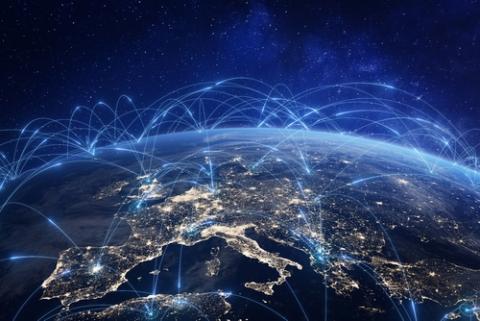Details
- Publication date
- Source
- Green Deal Projects Support Office
Environmental and climate data in an evolving EU data policy landscape: How can the experience of projects feed into the development of the Green Deal Data Space?
Watch this webinar which brings together projects working with environmental and climate data to discuss their experiences, share their challenges and solutions, and to contribute to the evolving EU data policy landscape.
About the webinar
'GreenData4All' is a European Commission initiative proposed as part of the European strategy for data, which aims to make environmental geospatial data more accessible and usable, in order to strengthen evidence-based policy-making and implementation.
It aims to contribute to the Green Deal objectives with the support of a Green Deal data space, linked to several European legal instruments. The definition of a Green Deal Data Space is ongoing with the involvement of several European Commission entities, e.g. the Joint Research Centre (JRC), DG CONNECT and DG ENV) . This space will ultimately bring together various sources of data, including business data, geospatial data, citizen-generated data, and research data.
The aim to improve data availability is common amongst the various European Green Deal tools. For example, two actions from the Work programme Zero Pollution Stakeholder Platform will contribute precisely to this aim:
- Action 24 - Create a Zero Pollution contribution to the European Green Deal Dataspace to improve data availability, and
- Action 25 - Create Destination Earth to develop a very high precision digital model of the Earth with Copernicus data as key building block to monitor the state of air, freshwaters, seas and soil.
Many EU-funded projects – both from the Green Deal Call and others – deal in one way or another with data. Whether generating, collecting, managing or using data, it raises many challenges and questions, including:
- dealing with the enormous volumes of information now available
- codifying and structuring qualitative data (e.g. from surveys) within a useable database
- ensuring full use is made of the data by end-users
- safeguarding data to ensure that it is compliant with legislation e.g. the INSPIRE Directive
These questions, and many more, are part of ongoing discussions towards the development of the Green Deal Dataspace.
Webinar objectives
This webinar will bring together projects working with environmental and climate data to discuss the challenges they face in this area to contribute to the evolving EU data policy landscape.
In particular, it will enable the Green Deal Call projects to exchange views and experiences on the way they approach the management and use of different types of data, the technical and legal challenges they face, and the solutions they have identified. Their recommendations and insights for the creation of the Green Deal Data Space will also be sought.
The webinar will also foster synergies with other EU-funded projects and initiatives which directly contribute to the creation of the Green Deal Data Space. Questions to the projects that will guide the webinar include:
- What are your best practice examples on generating data in a way that fits policy and other needs? How can we ensure that data collected matches these needs?
- How can we improve the availability and accessibility of high-quality data (both quantitative and qualitative)?
- What are your best practice examples on cross-project collaboration on data?
- How can we encourage data use and reuse by both private and public entities and individuals (end users)? How can end users be part of the data creation process?

